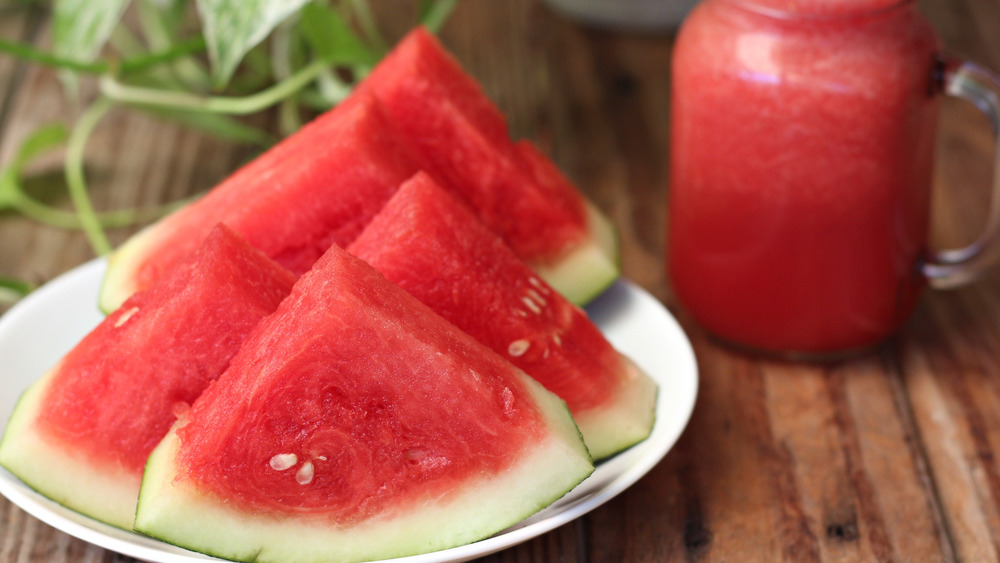What Happens To Your Body When You Start The Watermelon Diet
Watermelon isn't just for hot summer day picnics anymore, according to a new diet fad. Some people are choosing to consume the fruit exclusively, in what has come to be called, predictably, 'the watermelon diet.' Consisting of 92 percent water (per Healthy Women), watermelon is extremely hydrating. Being properly hydrated helps flush toxins and is necessary for every function of the body to work optimally (via Harvard Health Publishing). In addition, proponents of the diet believe that the more watermelon you consume, the more full you can feel, which can assist in weight loss.
Watermelon contains a good amount of nutrients like vitamins A, B6, and C, as well as fiber, and lycopene. Lycopene is a powerful antioxidant that may help reduce the risk of heart disease and cancer (via Healthline). Watermelon also contains l-arginine and l-citrulline, antioxidants that are suggested to decrease inflammation and boost immune function (per LIVESTRONG). Jessica Marcus, MS, RD, CDN tells Healthline that watermelon typically will not harm you and states, "So it's low in calories and provides some vitamins and minerals. It's hydrating, refreshing, and can help you feel full, at least temporarily."
With watermelon being a vehicle of so many nutrients, could eating it exclusively for a prolonged period of time have lasting health benefits? Let's slice into this one.
The risks in eating only watermelon
The watermelon diet, which is more of a detox or cleanse, has one main rule: Consume only watermelon for three or more consecutive days (via Healthline). After the detox period, dieters may resume a normal diet, or continue to eat less while still incorporating watermelon into their meals. According to LIVESTRONG, the diet's guidelines suggest eating about two pounds of watermelon for every 22 pounds of body weight. Some have followed this detox diet for up to ten days straight.
Unfortunately, according to LIVESTRONG, this is a "crash" diet that is not sustainable, may cause muscle loss, and can even take a toll on your metabolism. Because of the restrictiveness of the diet, there is no way to get in other essential nutrients, like fats and proteins. Marcus also says that fad diets do not work for long-term weight loss, stating, "Study after study shows that these fad-type diets don't work in the long run. Once the diet period is over, people fall into their old habits, regain the weight, and look for the next diet to test drive." While it can be beneficial to choose watermelon over higher calorie foods, a diet consisting of solely of one summer favorite is not advised.


